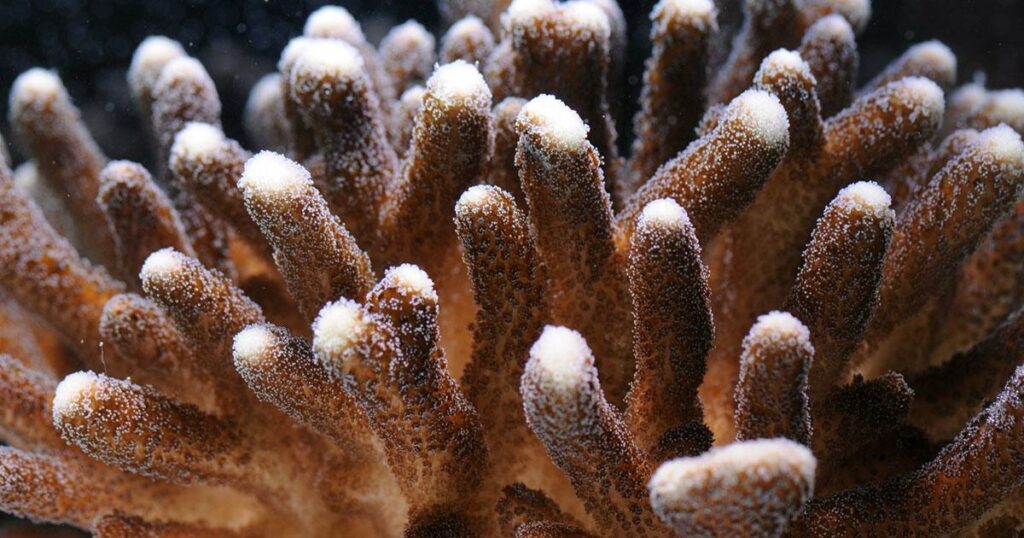In 2014, the United Nations Intergovernmental Panel on Climate Change took a measured position on coral reefs: “Coral cover and calcification have decreased in recent decades… but attribution to climate-related and human-related drivers is difficult… within the uncertainties of past sea level rise and coral reef growth, most coral reefs seem to have kept pace with the recent sea level rise.” In 2018 they threw caution to the hot winds: “Tropical coral reefs face very high risks (Figure 3.19) of becoming unsustainable … if warming exceeds 1.5°C. … In the last 3 years alone, large coral reef systems such as the Great Barrier Reef (Australia) have lost as much as 50% of their shallow water corals.” But beware of claiming the science isn’t settled just because it keeps changing; James Cook University of Australia recently fired marine scientist Peter Ridd for speaking out against coral alarmism despite mounting evidence in his favour.
Canadian MPs displayed feverish alarm about climate during the House of Commons emergency debate on October 15. Including Liberal MP Julie Dabrusin invoking the plight of corals, saying “80% of coral reefs would disappear as a result of a 1.5° increase. At 2°, the report finds that pretty much 99% of them would have gone.” And she had at least read the 2018 IPCC report accurately. But its striking change in tone from the 2014 report ought to be an indication that the science is in a state of flux, and also that there is an urge to ratchet up the hype relentlessly even if the facts stubbornly won’t cooperate.
So far they aren’t. Even as the new report claims “The distribution and abundance of coral reefs has decreased by approximately 50% over the past 30 years,” (Ch 3 page 90) it attributes the change to “pollution, storms, overfishing and unsustainable coastal development.” None of which is climate change unless you blame the storms on a CO2-driven rise in extreme weather. However, the report goes on to predict that soon it will be, that warming of 2C will cause 99% of reef-building corals to vanish.
If true it makes us wonder how the corals survived the Medieval Warm Period, known to have occurred in the Southern Hemisphere as well as the Northern, as well as the warm intervals in Roman times and earlier, and also previous interglacials including the Eemian uncontroversially held to have been three or more degrees warmer than the current Holocene. For that matter, modern coral genera flourished during the Jurassic, Cretaceous, Paleocene and Eocene, all much warmer than today.
Despite their actual history, it’s a wonder there are any corals at all since scientists have claimed not only that warming kills them, but that cooling does too (see also here.) In reality, corals are known to have mechanisms for coping with warming, which the IPCC seems to take note of only selectively although believers in the theory of evolution might be expected to anticipate a certain degree of resilience in successful organisms.
Is it possible that coral reef scientists, like many other environmental scientists, see too much fragility and vulnerability in natural ecosystems, even brittleness at odds with ecologists’ normal enthusiasm about the dynamic adaptability of nature? One reason it’s hard to tell is that those few scientists who try to push back against alarmism tend to suffer badly for their efforts. Australian marine scientist Peter Ridd was sacked from his position at James Cook University after he voiced his objections to dodgy data analysis by some of his colleagues, which he argued had exaggerated the rate of decline of coral reefs in recent years.
Ridd is suing to get his position back. But even if he succeeds, such ordeals are extremely effective pour décourager les autres.



The Earth is 6004 years old, and the climate has been stable since that time, up to the industrial revolution. We must all pay indulgences for man's sacrilegious pollution of the air!
Actually the comment by “Thylacine” brings up a funny point. I would think that the biggest believers in rapid, and even relatively recent, climate change would be young earth creationists. After all, under those ideas dinosaurs walked the earth only a few thousand years ago.